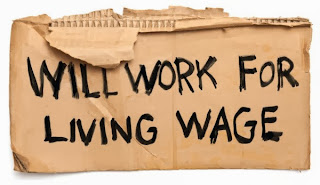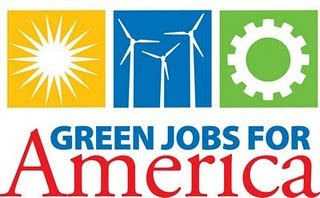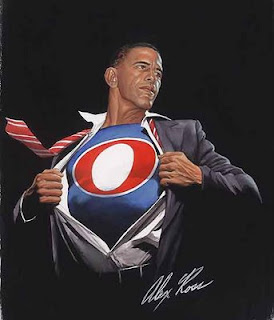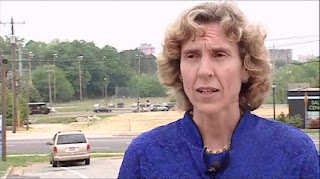
Fights erupt over Chris Dodd's Financial Reform Bill
Senate Banking Committee Chairman Chris Dodd said he wanted to produce a “bold” and “sweeping” Financial Reform Bill.
In other words, he’s got a bill that’s going to tick everyone off.
The 1,136-page draft measure the Connecticut Democrat unveiled last week would bulldoze the financial architecture built over the past 80 years, setting up clashes among Democratic chairmen, powerful regulators, small banks and their bigger competitors. He’s angered everyone from Coca-Cola to your corner credit union.
For those keeping score, here’s a list of the most significant fights erupting over Dodd’s bill:
Frank vs. Dodd
Dodd has immediately picked a fight with his House counterpart, Rep. Barney Frank (D-Mass.), by proposing to strip the Federal Deposit Insurance Corp. of its supervisory powers and give those powers to a new banking super-regulator.
“There is no chance of the FDIC being put in there,” Frank told POLITICO.
Frank isn’t the only one ganging up against Dodd on this one. Sheila Bair, chairwoman of the FDIC and incredibly popular on Capitol Hill, has argued loudly against such a move — including in a New York Times op-ed — saying it would threaten the country’s long-standing dual banking system. Community bankers also reject the idea, arguing that the largest institutions would consume the regulators’ time and attention, while smaller banks would be ignored.
“We’re going to be lobbying hard against it both here in Washington and via the grass roots,” said Steve Verdier, head of congressional affairs for the Independent Community Bankers of America. About 25 of the group’s state association executives will be on the Hill this week and will definitely raise the issue with their senators, he said.
The Fed vs. the World
If Federal Reserve leaders think everyone is out to get them on financial reform, they may be right. Virtually every major proposal seeks to scale back the Fed’s incredible powers — and there’s a huge push to audit the Fed for the first time.
Fed Chairman Ben Bernanke has warned that the central bank’s ability to directly oversee banks — especially the big complex bank holding companies — is key to the Fed having the know-how and information it needs to conduct monetary policy, especially in a crisis.
But the Fed doesn’t really have many people in its corner. The perceived missteps made by the Fed leading up to the crisis and the extraordinary measures it took during the crisis have made the central bank wildly unpopular on Capitol Hill with both parties. Dodd called the Fed’s regulatory record an “abysmal failure.” Even the big banks that support the Fed aren’t going to stick their necks out over the issue — and even if they did, lawmakers most likely wouldn’t listen.
The Obama administration — which envisions an enhanced, not diminished, Fed role — did step up to defend the Fed at the end of last week.
“No regulator had a perfect record leading up to the crisis. But in our view, the Federal Reserve is the agency best equipped for the task of supervising the largest, most complex firms,” Deputy Treasury Secretary Neil Wolin said in a speech Friday.
But some observers doubt the administration can do much to deter the anti-Fed push on the Hill.
Shelby vs. the White House
Any hope for bipartisanship goes through Sen. Richard Shelby, the wily Alabama Republican.
Where he goes, most of the Republican votes are likely to follow. And Shelby has been as vocal about what’s in the bill — the consumer financial protection agency — as what’s not in the bill: a serious overhaul of Fannie Mae and Freddie Mac.
President Barack Obama himself has put a lot of political capital on the line in pushing for the creation of the consumer financial protection agency, but Shelby calls the establishment of a separate agency an “obstacle” to his support. When asked by reporters about the White House’s strong support for the CFPA, Shelby observed that the administration doesn’t get a vote in the Senate.
Shelby, the top Republican on the banking panel, is balking at the idea of moving financial regulatory overhaul legislation without addressing the future of the companies, which were taken over by the government following the housing collapse last fall.
“And so the question is, what is it going to take; what are the fights going to be to try to bring enough Republicans along to get the bill done?” said Jaret Seiberg, an analyst with Washington Research Group.
Big banks vs. little banks
The two lobbies have been tussling over numerous aspects of financial reform, but Dodd’s bill sparked a brand-new fight.
Dodd wants the FDIC to collect its fees based on assets rather than deposits as it does under current law.
This would make business much cheaper for the smaller banks, which tend to have much lower assets but higher deposits. And it would make larger banks, which tend to have assets far in excess of deposits, pay more into the FDIC.
The two camps continue to fight over who pays into a “too big to fail” fund that would grant the federal government “resolution authority” to wind down large financial firms. Community banks want the big banks to prepay into this emergency fund. The big banks prefer the approach taken by Dodd’s bill: the FDIC collecting money from big firms after the crisis has passed. But the community banks won the day on the House side on this issue.
Apple Inc. & Coca-Cola vs. Democrats
Why would Apple and Coke — or, for that matter, Harley- Davidson and Ford Motor Co. — lobby so hard on derivatives legislation?
These companies live at the retail end of these complex financial tools, using them to hedge their futures on commodities like fuel, foreign currency rates and raw materials for their products. And they’re not happy about being lumped into the wide-ranging proposals to heavily regulate the derivatives market.
These big companies aren’t the speculators who caused the derivatives market meltdown, this group argues, and they’ll be seeking exemptions from Dodd’s tougher crackdown on the derivatives market. But some Senate Democrats have criticized the House bill for making the changes these companies asked for.
Sources: Politico




































































.jpg)























No comments:
Post a Comment